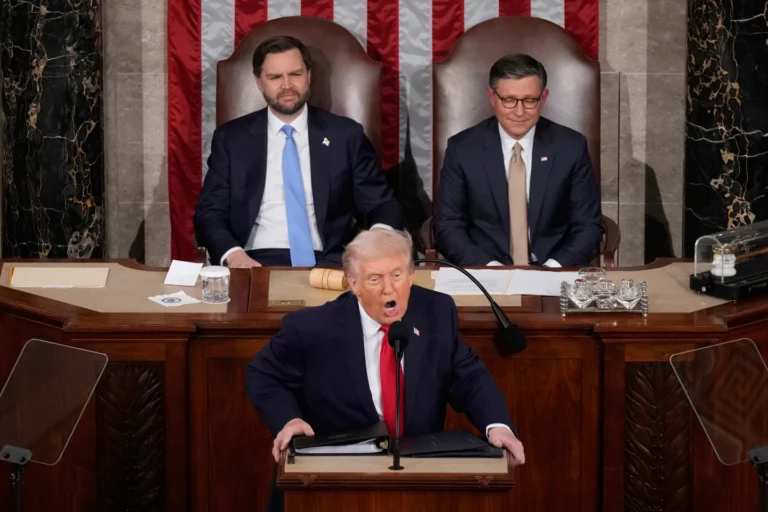Nominated to be House speaker, Rep. Steve Scalise is heading straight into a familiar Republican problem: Skeptical GOP colleagues are reluctant to give their support, denying him the majority vote needed to win the gavel.
The House opened its Thursday session at midday in anticipation of floor action to elect a speaker. But Scalise must peel off more than 100 votes, mostly from those who backed his chief rival, Rep. Jim Jordan, the Judiciary Committee chairman favored by hard-liners, as lawmakers dig in for a fight to replace Rep. Kevin McCarthy after his historic ouster from the job. No votes were scheduled.
“Time is of the essence,” McCarthy said when he arrived at the Capitol.
Asked if it was still possible for Scalise, R-La., to find enough support, McCarthy said: “It’s possible — it’s a big hill, though.”
The House is entering its second week without a speaker and is essentially unable to function, so the pressure is on Republicans to reverse course, reassert majority control and govern.
Action is needed to fund the government or face the threat of a federal shutdown in a month. Lawmakers also want Congress to deliver a strong statement of support for Israel in the war with Hamas, but a bipartisan resolution has been sidelined by the stalemate in the House. The White House is expected to soon ask for money for Israel, Ukraine and the backfill of the U.S. weapons stockpile.
“We’ve got a lot of work to do,” Scalise said after Wednesday’s private balloting by Republicans when he fell short of expectations.
A steady stream of some of the more hard-line Republicans filed into Scalise’s office late into the evening, bringing their complaints, criticisms and demands as he worked to shore up support.
The situation is not fully different from the start of the year, when McCarthy faced a similar backlash from a different group of far-right holdouts who ultimately gave their votes to elect him speaker, then engineered his historic downfall.
But the math this time is even more daunting. Scalise won the closed-door Republican vote 113-99, but now needs 217 votes to reach a majority that likely will be needed in a floor battle with Democrats.
The chamber is narrowly split 221-212, meaning Scalise can lose just a few Republicans in the face of opposition from Democrats who will most certainly back their own leader, New York Rep, Hakeem Jeffries.
McCarthy, R-Calif., noted that Scalise, a longtime rival, had indicated he would have 150 votes behind closed doors, but missed that mark. At midday, GOP lawmakers convened another private meeting.
“There’s not that much time left,” McCarthy said.
Jordan, who is founding member of the House Freedom Caucus and was backed by Donald Trump in the speaker’s race, said little after Wednesday’s internal party ballot, only that the GOP majority “is divided.”
Jordan, R-Ohio, did offer to give Scalise a nominating speech on the floor, is saying privately that he would vote Scalise and is encouraging his colleagues to do the same. But it was unclear whether enough whether lawmakers who backed Jordan will throw their support to Scalise.
Many Republicans want to prevent the spectacle of a messy House floor fight like the grueling January brawl when McCarthy became speaker. Usually, the majority needed would be 218 votes, but there are currently two vacant seats, dropping the threshold to 217 — and absences heading toward the weekend would drop the majority bar even lower.
Neither Scalise nor Jordan was seen as the heir apparent to McCarthy. In 2018, all three were similarly vying for leadership, with McCarthy and Scalise extending the rivalry to this day. Jordan is increasingly close to McCarthy.
For now, Rep. Patrick McHenry, R-N.C., who was named as the speaker pro-tempore, is effectively in charge.
On Thursday, McHenry gaveled the House into session, then quickly closed for an indefinite recess.
(AP)











